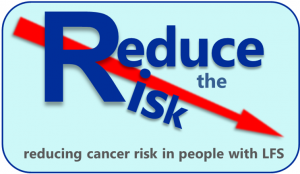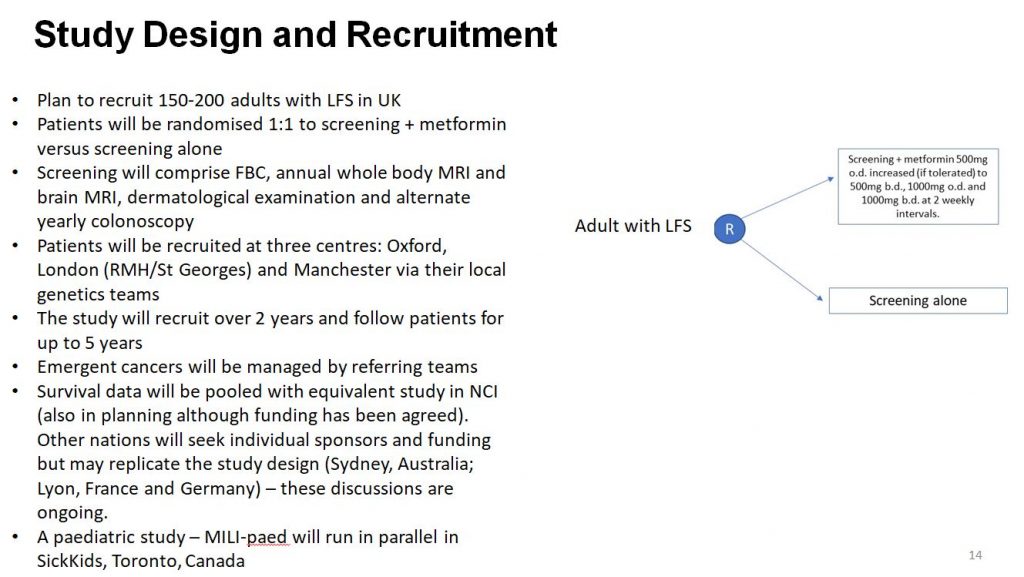 UPDATE – MILI now up and running! More details on the active studies page.
UPDATE – MILI now up and running! More details on the active studies page.
One of the most important areas of research for people with LFS is on active measures to reduce the risk of cancer developing in the first place. One of the first things that people ask after being diagnosed is ‘what can I do to reduce the chances of getting canncer?’ But the fact is that we don’t know which diet, lifestyle or drugs can improve the chances of avoiding cancer. There are theories of course – and we’ve covered some of them in the past – but nothing has been proven yet. Which is why we are so excited at the prospect of a clinical trial of the anti-diabetic drug metformin. There is already some work on this drug in LFS, including a small clinical trial in the US which looked at how tolerable the drug is and whether it had some biological effects. But what that trial cannot do is tell us whether it actually reduces cancer risk. For that you need a larger trial, with many more people with LFS taking the drug and for a longer period. This is exactly what is planned with the MILI trial – it is designed from the outset to answer the key question: does taking metformin really reduce the cancer risk for people with LFS. Getting this done will be a huge undertaking, but it’s absolutely essential if we want to answer the question because only when we have that answer can we make sure that everyone who needs the drug can get it from their doctor.
Dr Sarah Blagden, along with others, including us here at the Trust, has been developing the trial – which she explains in the attached presentation. Make no mistake, getting this done, in spite of the many challenges ahead, will be pivotal.

